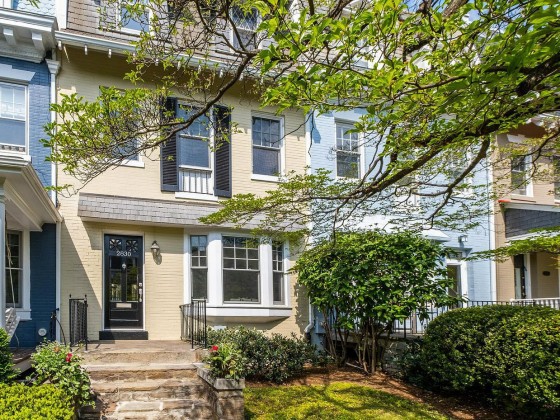 Buyer Beware...Even of Your Buddies
Buyer Beware...Even of Your Buddies
✉️ Want to forward this article? Click here.

Buying with friends sounds like a great idea. Round up a couple of college buddies, pool money for a down payment and recreate the dorm life (on a slightly more upscale basis) in a townhome or condominium of your own. Rather than paying rent, all of you build equity in a property with an eye on reaping the returns of your investment five or ten years down the road. What could be better?
If done right, this can be a worthwhile undertaking. The problem is that many people blithely enter into the financial labyrinth of homeownership without considering the legal implications and money problems which could result if the co-owners are not all in agreement about every aspect of the transaction. Below we outline a few topics that you should seriously consider before embarking on this potentially fruitful endeavor.
- How to Hold Title: Married couples typically own property as “tenants by entirety” or “joint tenants with right of survivorship” so that if anything happens to one spouse, the other automatically inherits the property. Friends may choose to own as “tenants in common” so, in the event something happens to them, they can pass on their portion of the property to a relative.
- How to Pay for the Home: If one owner has better credit than the others, it may make sense to put the mortgage in just his/her name. However, if this is how the process moves forward, you should be very careful that the financial agreements on loan payments are in writing. The paper trail of deposit and down payment money needs to be transparent for tax purposes and the future sale of the home.
- How the Ownership Will Evolve: A legal agreement should be drafted which spells out what will happen in the event one owner wants to move before the other owners are ready to sell.
- Taxes: A big incentive for homeownership is the ability to take the mortgage interest tax deduction. If each owner files separate tax returns, you need to determine how much of the deduction belongs to each person. It’s easy if the down payment, mortgage payments and maintenance costs are divided equally, but if the split is uneven, everyone needs to agree in writing about who takes how much of the deduction.
- Maintenance: Homeowners need to be financially and psychologically prepared to take care of the property. Be sure to carefully plan out a home maintenance schedule, and decide how to make decisions on home improvements and who will pay for repairs.
Hire an Attorney
Working with a real estate attorney with experience in this type of transaction is extremely important because that attorney can provide important advice and make sure that you and your co-buyers have considered every decision that may need to be made related to the property. Getting everything in writing is not only important from a legal standpoint, but it can also be a way to save your friendships if arguments crop up in a few years.
See other articles related to: condo buying, dclofts, home buying
This article originally published at https://dc.urbanturf.com/articles/blog/buyer_beware...even_of_your_buddies/1580.
Most Popular... This Week • Last 30 Days • Ever

As the year draws to a close, homeowners have the opportunity to maximize their tax b... read »

Some interesting residential plans are on the boards for the church at 16th Street an... read »

For sellers in Woodley Park, Chevy Chase and Spring Valley, it was a good time to sel... read »

The high-end properties are set between the Potomac River/C&O Towpath and multiple pa... read »

The push to get federal workers back in the office; the buyer of the DC-area's most e... read »
DC Real Estate Guides
Short guides to navigating the DC-area real estate market
We've collected all our helpful guides for buying, selling and renting in and around Washington, DC in one place. Start browsing below!
First-Timer Primers
Intro guides for first-time home buyers
Unique Spaces
Awesome and unusual real estate from across the DC Metro













